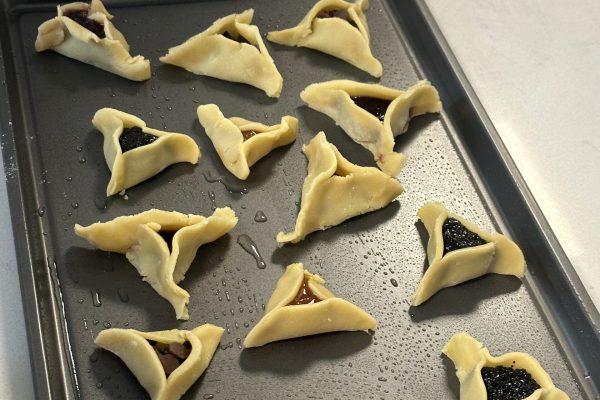There is no formal ceremony for you.
Because the world that created Judaism,
could not even see you.
Could not see the possibity of you.
Of this.
So we do what we can and what we get to do.
We create and imagine how it would have been,
if the world had been different long ago.
We echo the strength of the matriarchs
and women who forged the path.
All of them different and bright:
We see you~
Sarah, Rebecca, Rachel, Leah, even Hagar, and also Miriam, Hannah, Deborah and more.
We see Bruirah, Yalta and the many who are not named.
In their honor, and in your honor we say:
Welcome to our world!
With you, a world is born.
With you, we see a future we can only begin to imagine.
One where we see you.
We see the strong, bold, bright, beautiful, brave and incredible soul;
who is part of the fabric of a deep tradtion.
You are loved. You are seen.
Simchat Bat. Brit Bat. Our baby girl.
What a joy it is to welcome you into our world.
You are a blessing.











